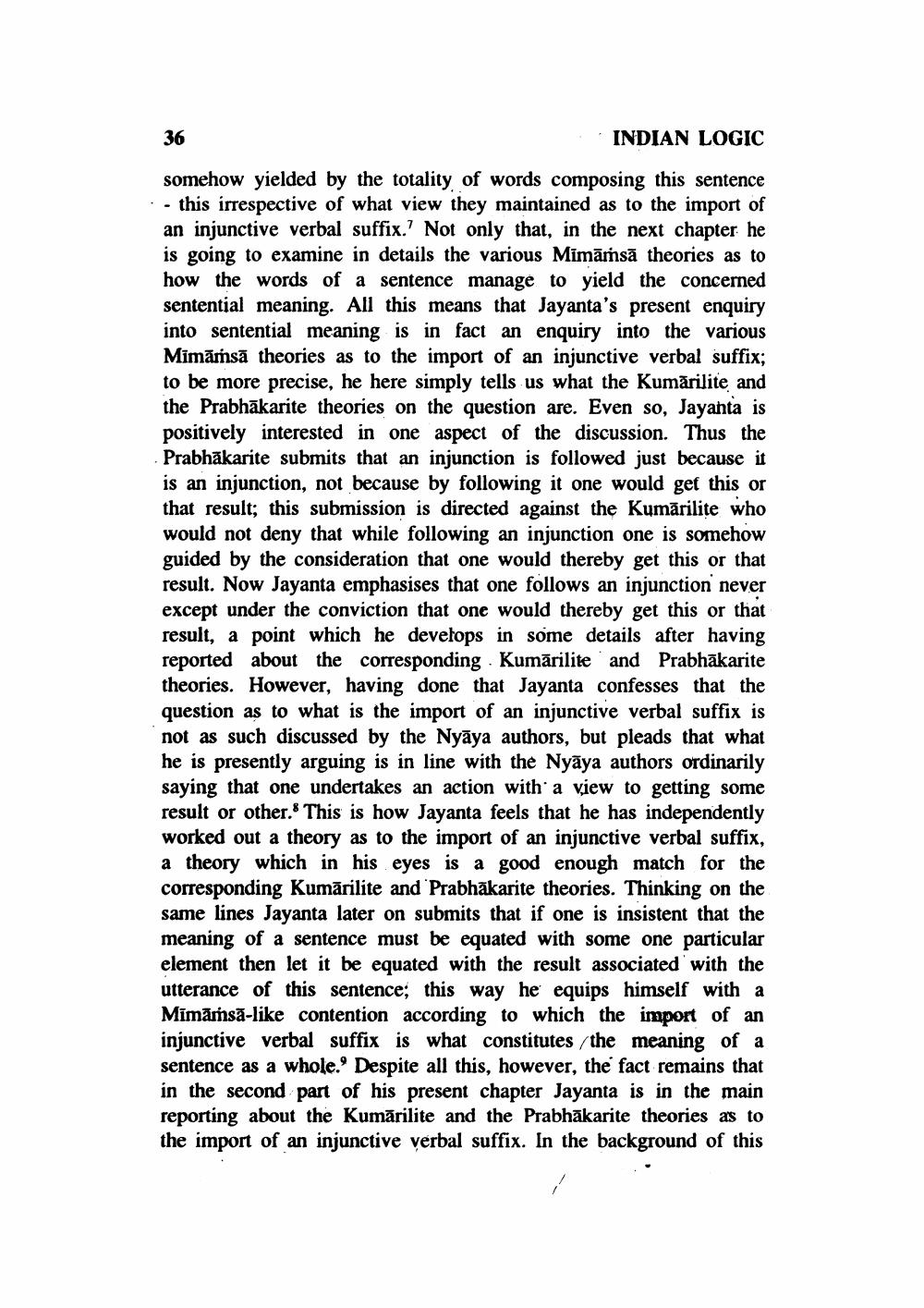________________
36
INDIAN LOGIC
somehow yielded by the totality of words composing this sentence - this irrespective of what view they maintained as to the import of an injunctive verbal suffix. Not only that, in the next chapter he is going to examine in details the various Mīmāṁsā theories as to how the words of a sentence manage to yield the concerned sentential meaning. All this means that Jayanta's present enquiry into sentential meaning is in fact an enquiry into the various Mimāṁsā theories as to the import of an injunctive verbal suffix; to be more precise, he here simply tells us what the Kumărilite and the Prabhākarite theories on the question are. Even so, Jayanta is positively interested in one aspect of the discussion. Thus the Prabhākarite submits that an injunction is followed just because it is an injunction, not because by following it one would get this or that result; this submission is directed against the Kumārilite who would not deny that while following an injunction one is somehow guided by the consideration that one would thereby get this or that result. Now Jayanta emphasises that one follows an injunction never except under the conviction that one would thereby get this or that result, a point which he develops in some details after having reported about the corresponding Kumārilite and Prabhākarite theories. However, having done that Jayanta confesses that the question as to what is the import of an injunctive verbal suffix is not as such discussed by the Nyāya authors, but pleads that what he is presently arguing is in line with the Nyāya authors ordinarily saying that one undertakes an action with a view to getting some result or other. This is how Jayanta feels that he has independently worked out a theory as to the import of an injunctive verbal suffix, a theory which in his eyes is a good enough match for the corresponding Kumārilite and Prabhākarite theories. Thinking on the same lines Jayanta later on submits that if one is insistent that the meaning of a sentence must be equated with some one particular element then let it be equated with the result associated with the utterance of this sentence; this way he equips himself with a Mīmāsā-like contention according to which the import of an injunctive verbal suffix is what constitutes the meaning of a sentence as a whole. Despite all this, however, the fact remains that in the second part of his present chapter Jayanta is in the main reporting about the Kumārilite and the Prabhākarite theories as to the import of an injunctive verbal suffix. In the background of this




